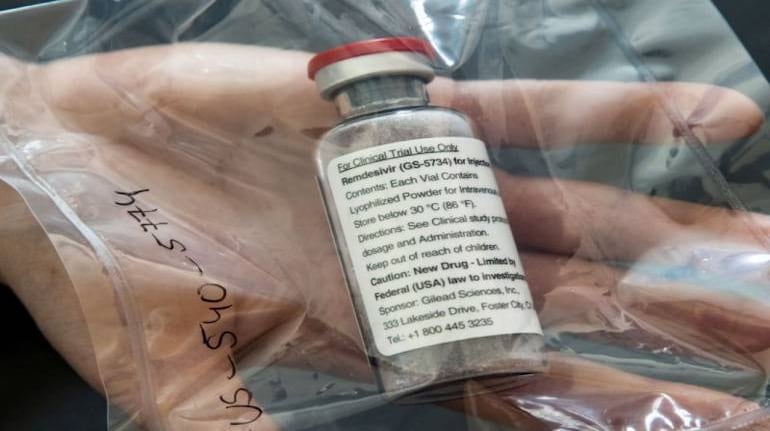



Remdesivir, the antiviral drug that's widely prescribed against COVID-19 has no substantial effect on mortality, initiation of ventilation or duration of hospital stay, as per global clinical trial by WHO has found.
The results of the Solidarity trial conducted on 11,266 hospitalised patients in 30 countries found remdesivir, along with three other repurposed drugs hydroxychloroquine, lopinavir/ritonavir and interferon to have little or no effect on 28-day mortality.
“These remdesivir, hydroxychloroquine, lopinavir and interferon regimens appeared to have little effect on in-hospital mortality,” the study found.
WHO discontinued hydroxychloroquine and lopinavir-ritonavir arms in July following the interim results.
WHO said the results of the trial are under review for publication in a medical journal and have been uploaded as a preprint at medRxiv - a non peer-reviewed journal.
Remdesivir had received regulatory approvals or temporary authorisations to treat COVID-19 in approximately 50 countries including India. The drug has been pre-qualified by WHO.
The antiviral has found to have some benefit in three other randomised, controlled clinical trials. In one large controlled trial in the US, the drug was found to have shortened recovery time by about a third in severely ill, hospitalised adults with COVID-19, but of little to help those with milder cases.
Gilead calls for rigorous review
Gilead has expressed concern that the data from the open label global trial have not been under rigorous review.
An open label trial means that both the researchers and participants know which drug is being given to participants.
"We are aware that initial data from the World Health Organization’s (WHO) Solidarity trial has been made public prior to publication in a peer-reviewed journal," said Gilead in a statement.
"The emerging data appear inconsistent with more robust evidence from multiple randomized, controlled studies published in peer-reviewed journals validating the clinical benefit of Veklury (remdesivir)," the company said.
"We are concerned that the data from this open label global trial have not undergone the rigorous review required to allow for constructive scientific discussion, particularly given the limitations of the trial design," Gilead added.
Remdesivir, was originally developed as a treatment for Ebola. The drug was granted emergency use authorisation by the USFDA in May following a trial by the National Institutes of Health, which found that remdesivir modestly reduced the time to recovery in severely ill patients.
Gilead has entered into licensing pact with several generic drug makers such as Cipla, Hetero, Dr Reddy's, Zydus Cadila, Jubilant Life Sciences, Syngene and Mylan to manufacture and distribute the drug in 127 countries including India. The drug found to be a major intervention for moderate to several COVID-19 hospitalised patients.
There is also growing demand from doctors to extend the administration of remdesivir to mild COVID-19 patients.
Discover the latest Business News, Sensex, and Nifty updates. Obtain Personal Finance insights, tax queries, and expert opinions on Moneycontrol or download the Moneycontrol App to stay updated!
Find the best of Al News in one place, specially curated for you every weekend.
Stay on top of the latest tech trends and biggest startup news.